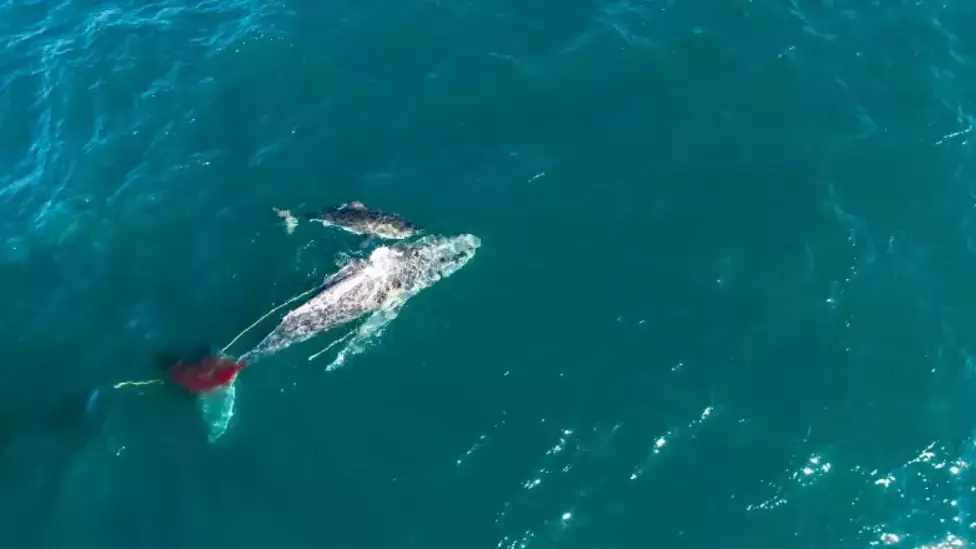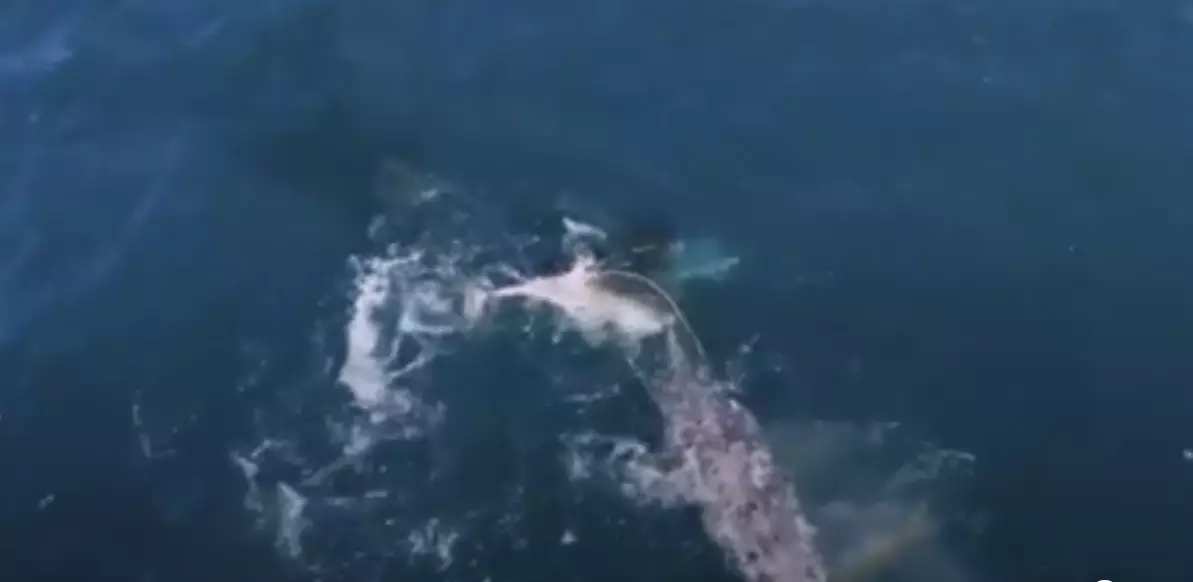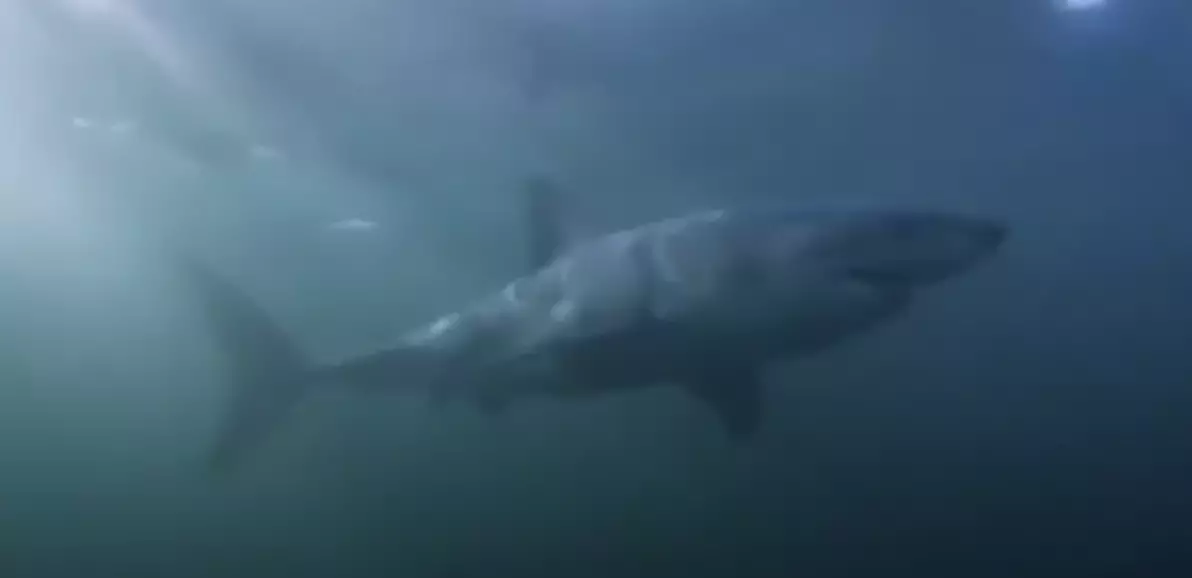
A great white shark has been captured on film attacking and drowning a humpback whale, with wildlife experts saying they believe it's the first recording ever of such an incident.
The footage, which was filmed last summer on a drone camera off the coast of South Africa, captures a 14ft shark hunting a 33ft humpback whale, which was in ill health.
Advert
The great white was recognised as one researchers had named Helen, having been tagged by marine biologist Ryan Johnson as part of a 2013 study he was leading.
According to Johnson, who witnessed the drama unfold, the attack lasted 50 minutes before the whale eventually succumbed and died.
He told Newsweek: "The idea that I was witnessing a live predation event slowly arrived when I started watching the shark trying to bite onto the whale's tail area.
"I honestly did not quite compute what a unique event it was until afterwards."

The incredible (if not slightly disturbing) footage features in National Geographic documentary Shark vs. Whale, which premieres on Tuesday 28 July as part of the channel's SharkFest.
Advert
It wasn't until after filming the attack that Johnson realised he'd captured the first ever documented evidence of a shark attacking and drowning event.
After looking for other similar cases, he couldn't find any verified reports of a shark successfully killing a living whale.
He said: "I had heard of Orca pods taking on large whales and calves, but honestly thought it was well out of the scope of great white sharks."

While humpacks are known to sometimes attack sharks, usually it's pretty uncommon for the fight to be the other way round.
Advert
Johnson said the shark was very strategic in its attack, initially managing to sever an artery or vein on its opponent's tail - its most vulnerable area - before dragging it underwater and drowning it. Pretty bleedin' savage, eh?
Johnson continued: "Great whites and other top predators function in keeping ecosystems in balance, mainly by removing weak or unhealthy prey from the ecosystem.
"In this case, we are talking about one of the planet's largest predators attacking and killing one of the world's largest species. It is just fascinating that we live on a planet that can still surprise us with an encounter of this magnitude."
Shark vs. Whale will premiere on National Geographic on 28 July.
Featured Image Credit: National Geographic